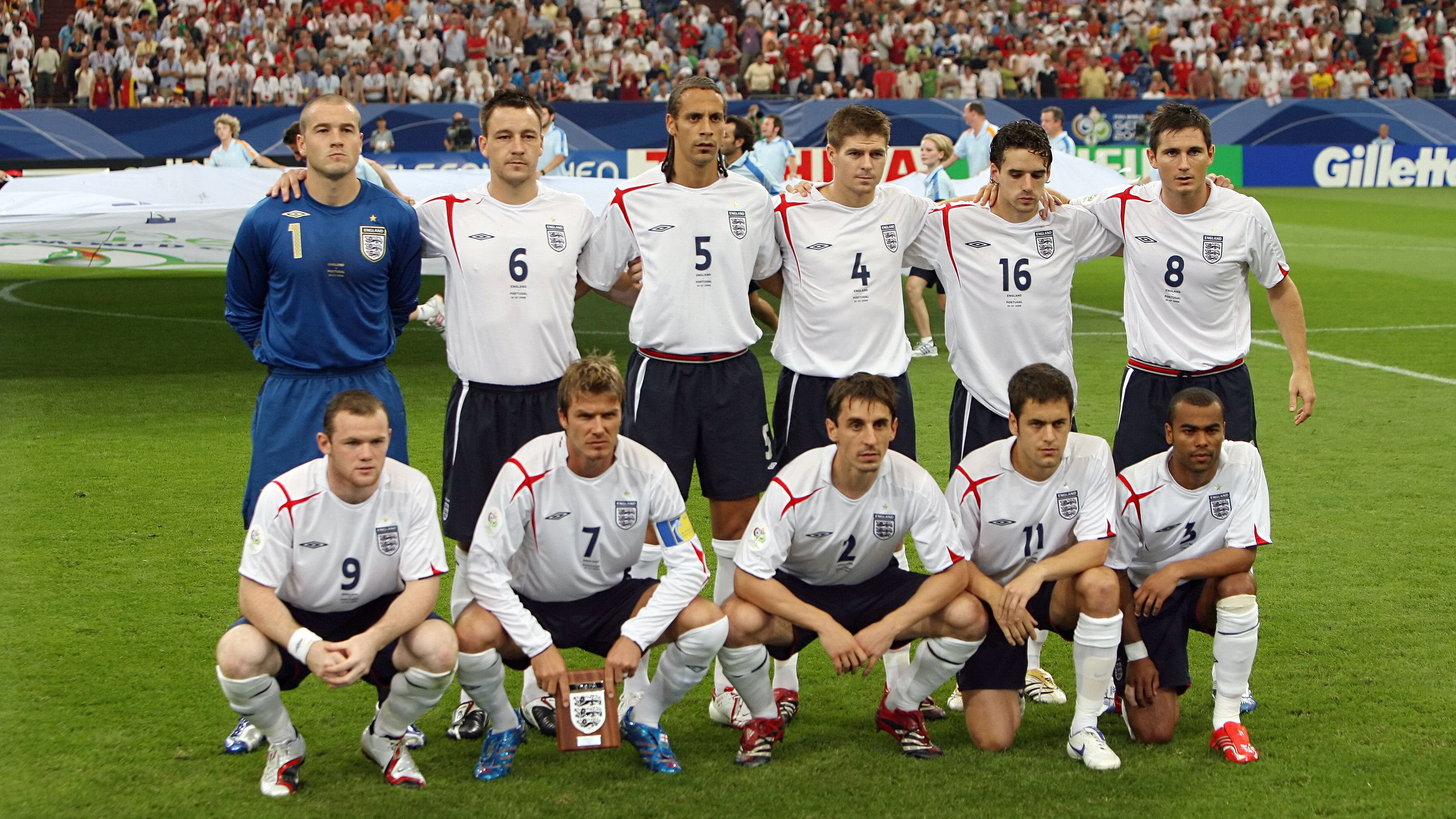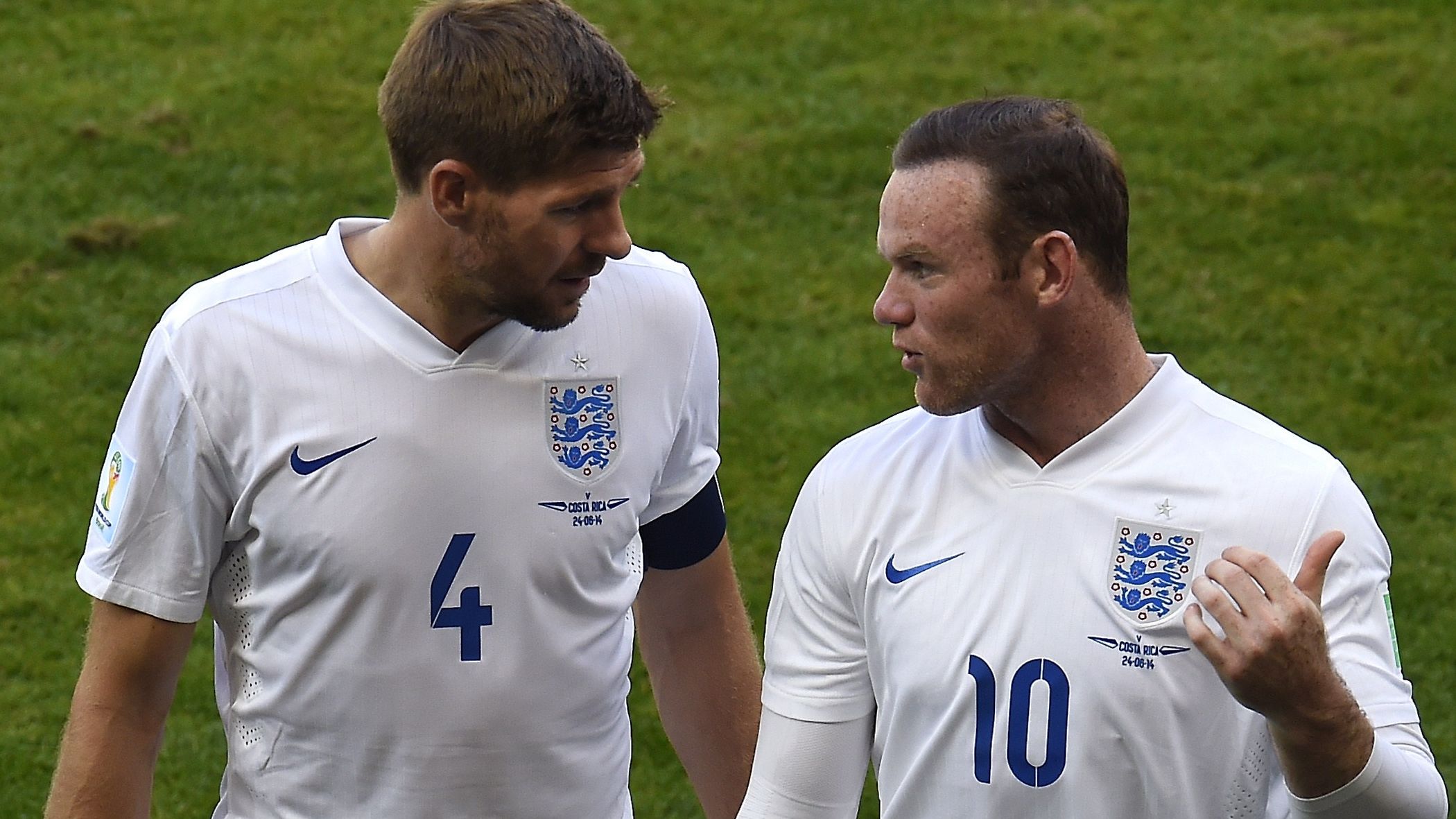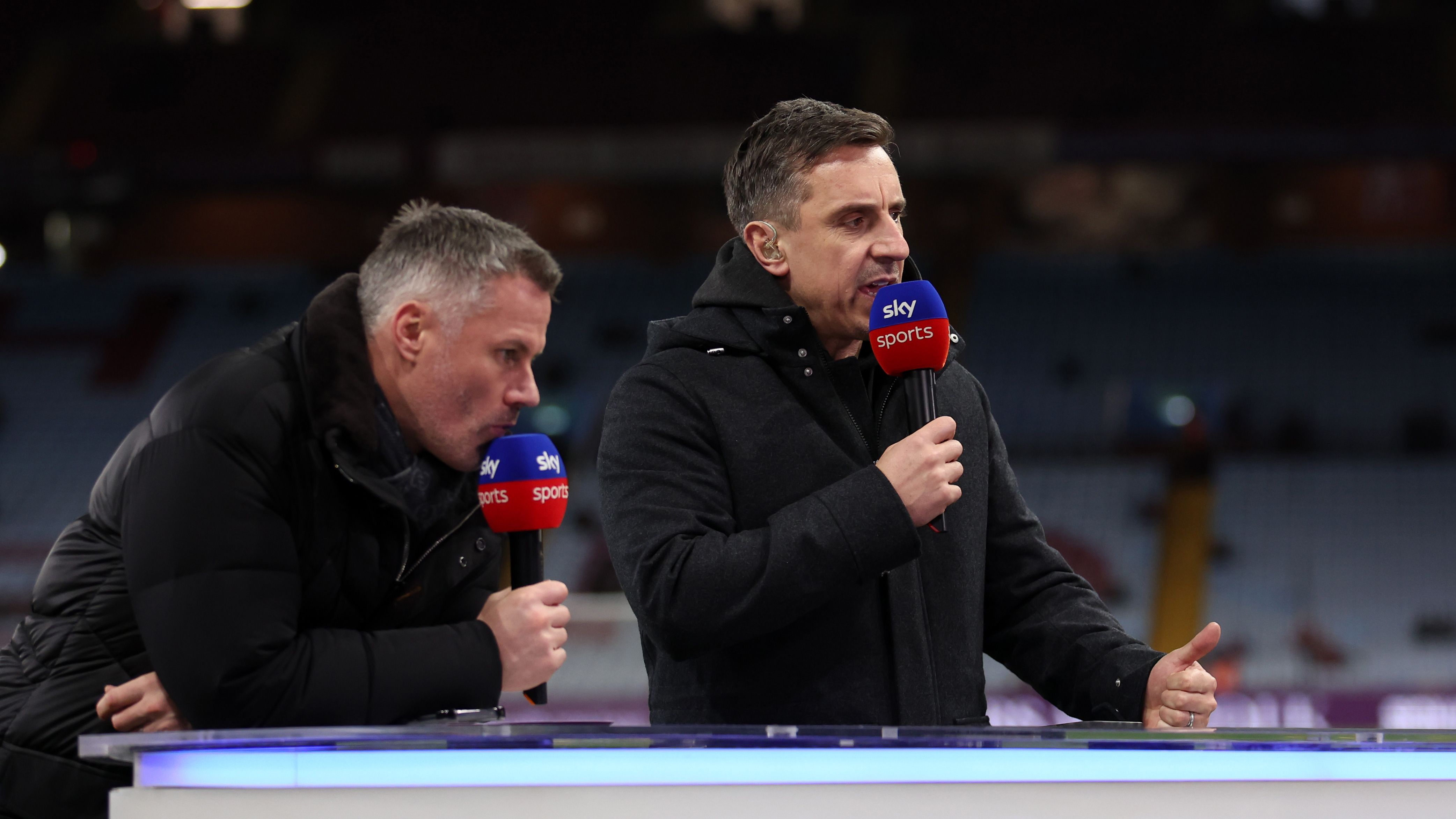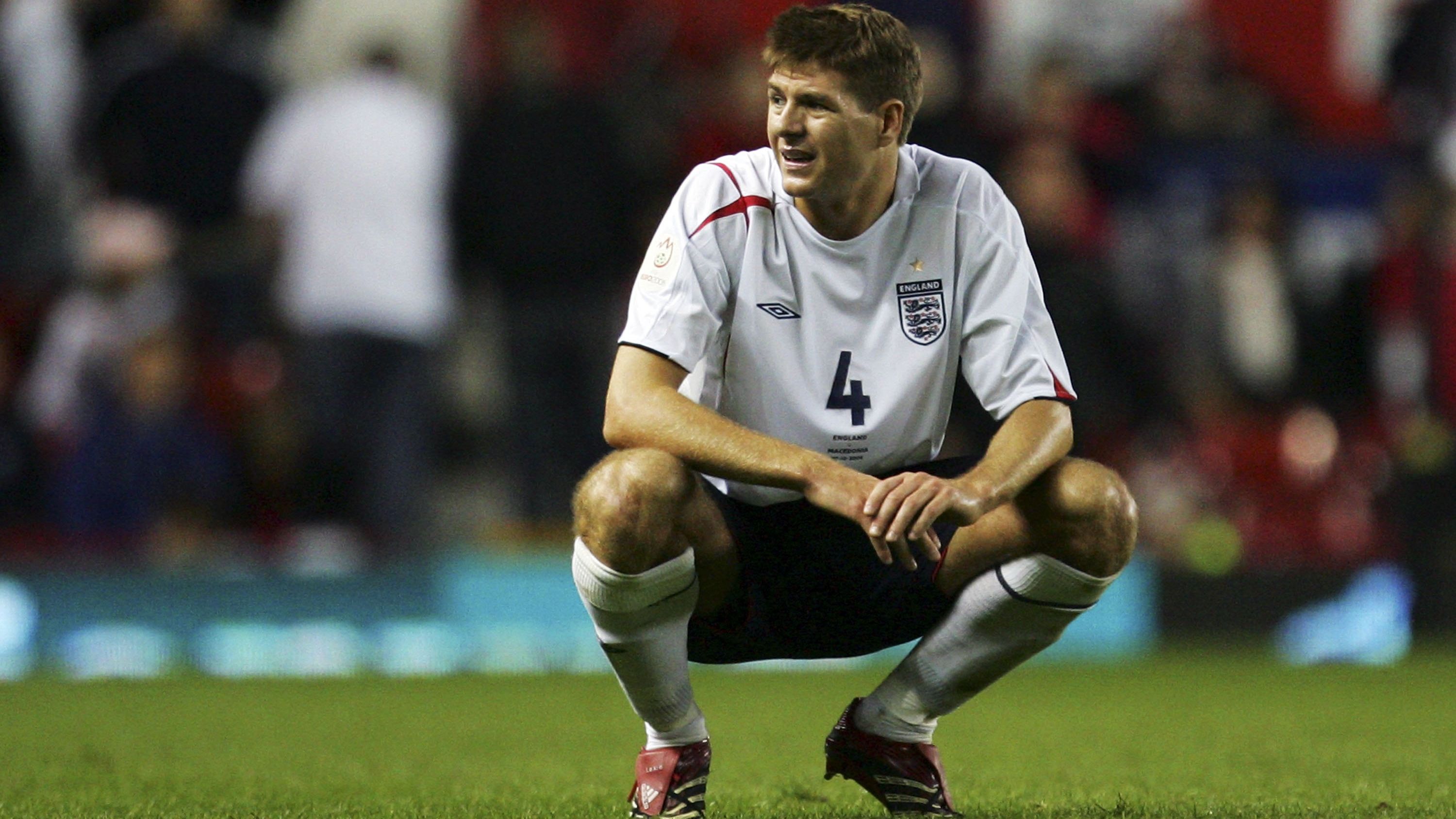Unveiling the Hidden Struggles of England’s Golden Generation
In a candid revelation from former England stalwart Steven Gerrard, the much-touted Golden Generation of English football is laid bare as a tale of untapped potential and internal conflicts. This Liverpool icon, who donned the national jersey 114 times from 2000 to 2014, shares his unfiltered thoughts on why a squad brimming with elite talent repeatedly stumbled at major tournaments, never advancing past the quarter-finals.
Steven Gerrard’s Candid Critique of England’s Golden Era
During his appearance on the Rio Ferdinand Presents podcast, Gerrard opened up about the underlying issues that plagued the England team, despite its abundance of top-tier players. He pointed to how pride, splits, and fierce club loyalties eroded any chance of a cohesive unit, ultimately hindering their collective success on the international stage.
The Role of Arrogance and Division in Team Dynamics
Gerrard didn’t shy away from self-reflection, labeling the group as overly self-centered individuals who failed to gel as a unit. Echoing sentiments shared by his host, he highlighted how the intense competition between Premier League powerhouses created a toxic atmosphere that undermined group harmony and performance.
Reflections on Past Rivalries and Current Bonds
With striking openness, Gerrard expressed his frustration at witnessing the warm relationships his former adversaries now enjoy, a stark contrast to the strained interactions during their playing days. For instance, he noted how figures like Jamie Carragher appear inseparable from Paul Scholes or Gary Neville in media appearances, questioning why such camaraderie was absent when they were younger and in their prime.
“It’s puzzling to see these connections flourish now, after years of distance,” Gerrard remarked, pondering if immaturity, competitive tensions, or personal pride kept them apart in their early twenties. He attributed this disconnect to a broader cultural issue within the England setup, where players remained isolated, spending excessive time alone and never truly forming a solid, unified front.
Contrasting Experiences: England vs. Liverpool
While Gerrard maintains a deep affection for representing his country, he described the national team environment as impersonal and exhausting, lacking the warmth he experienced at Liverpool. In comparison, his club career felt like being part of a tight-knit community, where he felt valued and eager to participate, whereas England duties often seemed like fleeting, detached visits.
Building Connections Over Time
Gerrard elaborated on how, at Liverpool, every trip or match built a sense of belonging and support from the staff, making those moments the highlights of his professional life. With England, however, the brief periods of emerging bonds were fleeting, typically only surfacing in the final days of a camp or during prolonged tournaments when players spent more time together, yet it was never enough to foster lasting team spirit.
Lessons for England’s Future as They Face New Challenges
As the current England squad gears up for upcoming matches, including a warm-up game against Wales followed by a crucial World Cup qualifier versus Latvia, Gerrard’s insights underscore the dangers of prioritizing individual egos over collective effort. His forthright assessment, from a player who poured his heart into every game, offers a profound lesson that resonates deeply within English football’s training grounds.
The original images remain unchanged and in their exact positions as follows: 



Steven Gerrard’s Criticism of Egotism in the England Squad
In the world of football, where rivalries and egos often clash, Steven Gerrard has opened up about the challenges faced by England’s so-called “Golden Generation.” This group of talented players, including stars like Gerrard himself, David Beckham, and Frank Lampard, promised so much but delivered little in terms of major international trophies. Gerrard didn’t hold back when describing the mindset that he believes held them back, labeling his former teammates as “egotistical losers.” This candid reflection sheds light on how individual pride can undermine team success in high-stakes sports environments.
Gerrard’s comments highlight a common issue in professional sports: the tension between personal ambition and collective goals. During his time with the England national team, he witnessed firsthand how egos could create divisions, even among world-class athletes. For instance, he pointed out that while players were fiercely competitive on the pitch, off-field relationships were often strained, which affected their overall performance in tournaments like the World Cup and European Championships.
Key Examples from Gerrard’s Experiences
Gerrard’s critique isn’t just broad strokes; he drew from specific observations to illustrate his point. One notable example is how he compared the on-pitch rivalries to the friendships that blossomed later in life. He specifically mentioned seeing former rivals like Gary Neville and Jamie Carragher, who played for Manchester United and Liverpool respectively, as close friends on TV panels today. Gerrard noted that these relationships seemed non-existent during their England days, suggesting that egos got in the way of building genuine bonds. This insight offers a window into the interpersonal dynamics that can make or break a team’s spirit.
This theme of egocentrism in sports isn’t unique to England. Many fans and analysts have debated how individual stardom can lead to fractured team dynamics. In Gerrard’s case, his remarks serve as a reminder of the human element behind the game, emphasizing how players’ mindsets influence outcomes. According to various reports, Gerrard felt that his England teammates prioritized club loyalties and personal accolades over national team unity, which contributed to their failures[başvurmak:[başvurmak:https://www.givemesport.com/steven-gerrard-england-players-egotistical-losers-gary-neville-jamie-carragher/].
Reflections on Gary Neville and Jamie Carragher’s Friendship
Shifting focus to the positive, Gerrard’s reflections on the friendship between Gary Neville and Jamie Carragher provide an uplifting contrast to his criticisms. These two football legends, once fierce rivals due to their club affiliations, have forged a strong bond that Gerrard now admires. He shared that seeing them as pundits and co-hosts on shows like Sky Sports’ Monday Night Football made him reflect on how their relationship evolved over time. Gerrard remarked that he feels closer to some of his former teammates now than he did during their playing days, underscoring the potential for growth and reconciliation in sports friendships.
It’s fascinating how Neville and Carragher’s partnership has become a model for overcoming rivalries. Despite representing opposing teams-Neville for Manchester United and Carragher for Liverpool-they’ve turned their competitive history into a foundation for mutual respect and collaboration. Gerrard’s comments suggest that this kind of friendship might have been missing in the England setup, potentially changing the narrative of their international campaigns.
Benefits of Fostering Team Friendships in Sports
While Gerrard’s story focuses on past shortcomings, it’s worth exploring the benefits of building strong interpersonal relationships in sports teams. Friendships like the one between Neville and Carragher can enhance team cohesion, improve communication, and boost overall performance. For athletes, having reliable bonds off the field can reduce stress and foster a more supportive environment, leading to better results on the pitch. In the context of England promoting SEO-friendly keywords like Steven Gerrard egocentrism critique article, understanding these dynamics can help modern teams avoid similar pitfalls.
Key benefits include:
- Improved Mental Health: Strong friendships among teammates can alleviate the pressures of professional sports, helping players like Gerrard maintain focus during crucial matches.
- Enhanced Collaboration: When egos are checked, players are more likely to share ideas and strategies, much like how Neville and Carragher now collaborate on broadcasts.
- Long-Term Legacy: As Gerrard points out, these relationships often lead to lasting connections that extend beyond retirement, creating opportunities for post-career ventures.
Practical tips for fostering such friendships could include regular team-building activities, open communication sessions, and encouraging cross-club interactions. For example, national teams could organize off-pitch events to break down barriers, helping players prioritize team goals over individual egos.
Case Studies of Egotism and Friendship in Football History
To provide more depth, let’s look at case studies from football history that mirror Gerrard’s experiences. One prominent example is the 2006 World Cup England squad, which Gerrard was part of. Despite having stars like Wayne Rooney and John Terry, internal conflicts and egos reportedly contributed to their quarter-final exit. Gerrard’s own reflections align with this, as he described the squad as a collection of talented individuals who struggled to gel as a unit[başvurmak:[başvurmak:https://onefootball.com/en/news/selfish-losers-world-star-slams-his-time-with-the-national-team-41779668].
In contrast, consider Spain’s successful teams from 2008 to 2012, where players from rival clubs like Barcelona and Real Madrid put aside egos to dominate international football. This case study shows how prioritizing friendship and team unity can lead to multiple Euro and World Cup wins, offering a blueprint for England to follow.
Another angle is first-hand experiences from other players. For instance, Gary Neville has spoken about his evolving relationship with Carragher, noting how shared media work helped them bond. This personal insight, echoed in Gerrard’s comments, highlights the transformative power of time and shared interests in overcoming past rivalries[başvurmak:[başvurmak:https://sports.yahoo.com/article/steven-gerrard-england-golden-generation-063726692.html]. These stories not only make Steven Gerrard England teammates criticism more relatable but also emphasize the importance of evolving relationships in sustaining a successful career in football.
By examining these elements, readers can gain a fuller understanding of how egocentrism affected England’s golden era and how friendships like Neville and Carragher’s can inspire positive change in sports culture. This approach ensures the article remains engaging, weaving in keywords like Steven Gerrard friendship reflections naturally for better SEO visibility.









